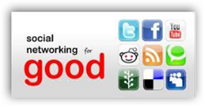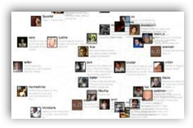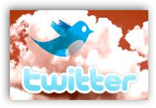First of all, small disclaimer here, I do this for a couple organizations and has it paid off, yes, so feel free to inquire at any time on how this works, as it does. Everyone  knows me as the Medical Quack on Twitter, Facebook and of course the blog. I started out with the blog over 3 years ago and the crowd is growing and I feel I offer some different slants on the what is in the news today as having a bit of a hybrid background if you will, that of being a former “coder” with writing an EMR program about 7-8 years ago and secondly over 20 years in outside sales and marketing in a prior life, even though not healthcare related, it still works as marketing is marketing once you know the product and/or service and how to target.
knows me as the Medical Quack on Twitter, Facebook and of course the blog. I started out with the blog over 3 years ago and the crowd is growing and I feel I offer some different slants on the what is in the news today as having a bit of a hybrid background if you will, that of being a former “coder” with writing an EMR program about 7-8 years ago and secondly over 20 years in outside sales and marketing in a prior life, even though not healthcare related, it still works as marketing is marketing once you know the product and/or service and how to target.
I’m really glad the AMA did the article to emphasize the importance of social media in healthcare today as it does matter and connections are made and it is an extension of just having a website. Followers and readers feel “the connection”. Speaking for myself and the way I function, it is just as efficient and easy for me to work as a “contracted” networker as I am on the  networks sometimes all day and can immediately see what is being discussed and be able to put forth perhaps a small “tweet” or “Facebook” entry that is related to topics being discussed. That is one advantage to working with someone who is “on the network” daily and even on weekends too, as yes I am there too. When do I sleep, I get asked that a lot and yes I do find time for that too.<grin>.
networks sometimes all day and can immediately see what is being discussed and be able to put forth perhaps a small “tweet” or “Facebook” entry that is related to topics being discussed. That is one advantage to working with someone who is “on the network” daily and even on weekends too, as yes I am there too. When do I sleep, I get asked that a lot and yes I do find time for that too.<grin>.
The article mentions Mayo Clinic in having a full time social networking manager and simply due to size and all the areas they cover, yes this is definitely a full time job for Lee Aase. Size of organizations vary too so a Lee Aase may not be in the budget for all so this is where the “contracted” social networker comes in, to fill in the gaps and yet get someone who is familiar or daily researches what is going on with an organization and is able to connect with the social networks on various levels.
With the research I do on my own personal blog I end up being a walking sort of vocal encyclopedia at times in conversations as I can reference in my head writing about a particular product or services. On my own blog I take some time out for some interviews here and there, as I can’t do this full time but when I have companies and organizations who either directly or through a public relations firm, I determine what adds content and what I feel fits, and not everybody fits all the time so if I have ever not included a request, my apologies to all as again I try to stay within my own focus, and there’s room to advertise and again I try to keep that area within the realm of what is covered so you don’t see ads that are not healthcare related or those for online pharmacies as an example to where I have no knowledge of the company or how they do business. 
There are many physicians on social networks, which I think is great and everyone is a little different in how they communicate and who they want to reach. Some are just on Twitter, some have blogs, some are on Facebook, and some do all of it. Last year I even spent a little time with the folks at Kaiser answering some questions about Twitter and how I focus and basically what works for me. They are well on their way of course now but this was in the beginning stages so I was happy to offer any guidelines or items that work for me. Each situation is going to be different and again there needs to be a little “marketing or sales” living within your social networker by all means. It’s not brain surgery but rather an areas where you need to direct constant attention as things and the focus of conversations change rapidly and if you miss an opportunity within let’s say a 30 minute time frame, you move on as sometimes you can’t go back and capture it, but in some instances you can re-ignite a focus too.
You almost have to have someone who is dedicated to social networks as I have seen when you add it to an already over loaded employee with too many other responsibilities to carry out, the focus may get lost or they simply may not have the time to fully dedicate and represent your  best interest. When hiring a social networker, make sure they can do research and keep up to date on what is happening in your organization too, up to the minute and keep a line of communication open for them to be aware of press releases when they are published too. Press releases of course still work, but going to the next level and getting a web discussion about it is key. If nobody is talking about it, what has the press release done?
best interest. When hiring a social networker, make sure they can do research and keep up to date on what is happening in your organization too, up to the minute and keep a line of communication open for them to be aware of press releases when they are published too. Press releases of course still work, but going to the next level and getting a web discussion about it is key. If nobody is talking about it, what has the press release done?
One thing that gets old too on social networking is “bragging rights” too and I see this all the time. While it is important to convey something new or talking about something of value your organization is doing, don’t pound the pavement with something like “we did a record number of flu shots today”, bottom line of this is “who cares”. Now if you have opened a new facility in your area to where consumers can go to find flu shots, that’s worth talking about. That is just a simple example as with social networks you want to “engage” others and not just put out a bragging sheet as people will turn off to that after an amount of time.
I also automate and have Twitter work with my blog to tweet when a new post is made and regular readers on Twitter look for these types of notifications, I do and use Twitter to locate what I might be blogging about as it is efficient and gets me quickly to the hub of what’s in the news today. As an example I follow the LA Times on Twitter so I can see within a few seconds what they are reporting today in healthcare without having to navigate to their page and find those stories. It’s efficient and works well.
A good social networker is going to be a good curator too in grouping together related stories and find other newsworthy items found by others. That is certainly part of the social experience. I try my best in this area to retweet and there are certainly others on the web who probably excel even further than myself here. For myself and my clients I try to not go for the “OMG” headlines unless they have value content, but occasionally they do make their way in, again if it is something that is heavily being discussed on the networks that day. With being a social networker you are not going for the “ratings” as the professional journalists do but rather are a partner with them to take the great news they have reported and take it to the next level and make it personal and add value for readers. Social networks are about being personal and if there was not a demand for this, folks like me would not exist. In other words I try to take a news item and define a little more on the effect it may have on you personally, and it may or may not fit and the readers are the best judge there. 
With Twitter too some always think that the number of followers one has is the rule of success, not always so as I believe it’s in the types of followers one has, in other words someone who is following 10,000 is not going to see as much of what you publish as let’s say someone following maybe 1000 or even 2000, which is a pretty good number as you can’t follow everyone and capture the information you may want to see. There are also lists on Twitter that can help with this too so you can follow a list curated by someone on Twitter without individually following each feed.
Facebook as well as a blog also works as again if you send your blog feed over to Facebook you have constant activity and this is what people look for and again visit your Facebook site too occasionally and “get personal” there too. I have spoken to doctors who have built up relationships and have gained patients via Facebook. They are also savvy enough to realize that you keep it light and direct any medical questions outside of the general realm of healthcare off the walls. I tell everyone to think about what you post out there today as “what goes on the internet, stays on the internet”.
Most realize this today and discussions for the most part are kept on that level. It is nice though that a patient can reach out and communicate and perhaps begin a line of communication with a physician to inquire more about what they do and even in the future end up being a patient. I have seen doctors give links to inquiries to journal publications or other sites who may have the general information a reader is asking about and that’s always a good thing as the reader sees the physician as one who is willing to take a minute and help out. 
Your social networker is your curator on making your web presence a success and thus it is important that they are “tuned in”, so again sometimes looking outside using an already overloaded employee might be a good choice. Some social networking clients have the availability to add on others under the same account and this can be a good mix too as your contracted social networker can draw input from employees, and yet they don’t carry the primary responsibility but can feel free to chime in and add value too at any time. That is a good mix all the way around as you get the best of both worlds this way.
Most of my time I’m in my online office watching the trends but occasionally I do venture outside to gain some “real life interactions” too, as a mix of the real world and online is important too as you see the real world can vary quite a bit from those you connect with online. Last week a took a day and attended a convention in Los Angeles which in my view was one where I could also gather some valuable information. I pick and choose carefully, otherwise I could be attending conventions all the time and not get my social networking done! Below is a summary of the iHT2 convention which I thought was worthwhile as it was a mix of some of the smartest folks out there in Health IT, and yet was not a marketing oriented meeting, but rather one for learning and collaborating. We can certainly use more of these and I was glad I went. You can read the entire post at the link below and I included a short paragraph on the general topics covered here.
Institute for Health Technology Transformation Convention–Fall 2010 Convention - Insights From The Medical Quack
“Yesterday I had the opportunity to attend the event as a blogger and had hoped to return again today for round 2 and some additional insight. I do have to say that the agenda is not at all like your normal convention and some of the  brightest and intellectual individuals in Health IT were an attendance. I sat in on a few of the sessions to where Health IT was being discussed, telehealth for one area and much more to include ACOs(accountable care organizations and PHRs (personal health records). In my estimation, this is not only collaboration but an event that also creates a “think tank” environment as well. I’ll write more on the day later but in one group I posed the question of PHRs at Cedar Sinai to the CIO, Darren Dworkin as to how they relate and possibly work with the new HHS programs with the Blue Button offerings for patients to be able to get their information from the VA and Medicare”.
brightest and intellectual individuals in Health IT were an attendance. I sat in on a few of the sessions to where Health IT was being discussed, telehealth for one area and much more to include ACOs(accountable care organizations and PHRs (personal health records). In my estimation, this is not only collaboration but an event that also creates a “think tank” environment as well. I’ll write more on the day later but in one group I posed the question of PHRs at Cedar Sinai to the CIO, Darren Dworkin as to how they relate and possibly work with the new HHS programs with the Blue Button offerings for patients to be able to get their information from the VA and Medicare”.
A “contracted social networker is your think tank” so be sure and get the maximum results and get a smart one that can see beyond the daily marketing drub that we see all over the web and knows how to focus.
If your organization grows, then a full time person would or could be the next level up but for testing the water and to begin the mission of experiencing and working with social networking, the contracted individual is a good way to start. A few years ago, who would have ever thought this would be a a job! Get the right person with social networking and one who can familiarize themselves with your goals and objectives and is not just a “magpie’ out there. In the news of late someone reported that there’s a huge number of “tweets” that are ignored and never read, so if using Twitter for business, don’t fall into that category either. Have a web presence of a communicator and participant and yet at the same time create the value that readers are looking for.
This about concludes what I have to say on this topic and feel free to contact me if you like on this topic.
I’m always open for talk and discussion, after all “ I am social”. BD
Social media managers are hired by hospitals that already have a presence on Twitter, Facebook, YouTube or other sites. Usually, the position grows out of a realization that social media require more time and effort -- and have a worthwhile payoff.
That's not to say that hospitals without social media managers don't see the technology as important. Or that the social media manager is the only one expected to know anything about Facebook, and how people converse on it.
Tizon hired Lewis, who started in July and quickly trained physicians (and Swedish's chief executive officer) about subjects such as how to post and respond to others' posts on Twitter; the legal and ethical rules for doctors on social media; how to interact with patients through social media; and how to use social media to make yourself a "thought leader" in your field.
Lewis, who got interested in health care and social media as a patient (she has type 1 diabetes), said her job is not to sell physicians who are skeptical about social media, "though I'd love for them to try." Instead, she responds to requests from physicians such as Dr. Backous, who wanted to use social media to help promote Swedish's Center for Hearing and Skull Base Surgery.
For years, the Mayo Clinic has had an active social media presence, but it was only in July that it dedicated its first staff member solely to it -- Lee Aase. He had worked in Mayo public relations, getting the clinic into social media in 2005 by recording its first podcast. Aase is now director of Mayo's Center for Social Media, and is involved not only with training Mayo's doctors, but also setting up a network that will teach outside hospitals and physician about social media.
amednews: Hospitals' new specialist: Social media manager :: Nov. 8, 2010 ... American Medical News



Its nice Blog.Medical tourism India facilitating less cost medical treatment to foreign patients. As everyone knows India has now become a global medical hub.
ReplyDelete